When Starbucks’ new UK MD Kris Engskov met staff at head office last month (July) he described the UK as "one of the most dynamic markets in the world for us".
The 39-year-old former aide to Clinton has been brought in to "continue the momentum Starbucks has achieved in this region", according to Starbucks. Indeed, Starbucks does seem to be picking up the pace again in the UK. A three-year global turnaround programme nears completion this year, following a troubled period for the US coffee giant in 2008. Latest figures show it added 24 outlets over the last half year to the end of June 2011, and now has 730 UK outlets.
However, as the company revealed third-quarter results at the end of July this year, it was careful to point out that expansion would continue only at a "measured pace". Indeed, as British Baker unveils its BB75 league table half-year update, it is clear that new store openings among the BB75 are holding up, despite tough economic trading conditions.
The half-year update shows that the Top 10 names, the largely corporate end of the BB75 league table, have all stayed in the same positions as at the start of the year, opening over 180 outlets between them. This compares with 247 openings at the halfway point in 2010.
The year 2011 is about holding the fort in the face of tough conditions on the high street. But there is an exception as coffee chain Costa continues to steam ahead with expansion. It now has nearly double the number of stores as Starbucks in the UK, adding 82 this half year. The chain, which operates in 25 countries worldwide, is at number three in the UK and could not be more upbeat.
In March 2011 the company announced the acquisition of Coffee Nation for £59.5m and it has a new vending brand, Costa Express, targeting the self-serve coffee bar sector. It has set a target of a massive 3,000 Costa Express units across the UK over the next five years.
Moreover, Costa’s loyalty programme, the Coffee Club card is now used in 41% of all transactions, and provides data on over 1.2 million active cardholders, offering valuable demographic information and promotional opportunities, it says.
Despite Costa’s growth trajectory, Greggs remains safely ahead in pole position on the BB75 league, although latest profits suffered from rising commodity prices. It has opened 39 net new shops so far this year and is on track to add a total of approximately 80 net new shops in the course of 2011. The current property market conditions have increased the availability of more attractive sites and encouraged landlords to take a more realistic view on rents, it says.
Greggs’ old bête noir Subway stays firmly in second place, adding a sluggish seven new franchises in the course of the year so far, bringing its total up to 1,427. That is a similar performance to last year’s, when it managed to recruit only 11 net new franchisees, but back in 2008 it was adding 300 a year and talking of having 2010 outlets by 2010, putting the wind up Greggs.
Trevor Haynes, area development manager UK and Ireland for Subway comments: "The Subway chain has been working hard to support franchisees through what has been a challenging time for all small businesses. The chain has focused on continuing to offer our customers a range of great-tasting subs, as well as opening stores both on the high street and in non-traditional locations, including petrol forecourts and convenience stores."
Many franchisees are finding that the availability of finance from the banks is still limited, which means they are operating in a cautious market, he tells British Baker.
At number six on the BB75 half-year update is SSP, the former Compass-owned travel business. Its various brands are managed separately, but increasing ingredients costs and deciding whether to pass these on to customers or to reduce margins is reported as a big common issue across the businesses, affecting key brands including Upper Crust and Caffè Ritazza.
SSP now has 21 Starbucks concessions (five of which opened in 2011) operated under licence and counted with SSP’s figures rather than Starbucks’ for the purposes of the BB75 league table. Rising commodity costs, particularly the price of coffee is reported to be a key concern for that business.
Lower-than-hoped-for passenger numbers are also dogging brands such as Soho Coffee Co, while Camden Food Co also sees a threat in Pret’s expansion into railway stations.
SSP has recently opened its second trial BreadBox format at Victoria station as it continues to experiment with its new "round pound" value brand.
Widespread change
At number 10 on the update, Sayers The Bakers, the north west-based bakery and café chain, which operates 151 outlets, has been placed on the market this half year, with an asking price believed to be in excess of £10m. The chain, led by chairman Sandy Birnie, was acquired in a management buyout from Lyndale Foods three years ago.
The management team has since restructured the business and pursued a turnaround strategy to return the business to growth, including developing Poundbakery, a value brand and retail format aimed at the "eat now" market. There are now 33 of these outlets.
Elsewhere in the BB75, Kapelad-owned BB’s Coffee and Muffins (number 27 on the BB75 league table at the start of the year) has spoken of its plans for the business. Kapelad took over the business in October 2009, after the existing company went into administration. Kapelad MD Andrew Moyes tells British Baker that, previously, the chain had only appealed to a certain demographic, and he was keen to broaden this to the key 18-35 age range, while retaining its coffee and muffin focus. The company will be giving its full 70-plus shop estate a makeover and has also changed recipes and menus.
Meanwhile, the troubles continue at the bakery chain once known as M Firkin, at number 36 on the league table at the start of the year. Currently called Firkins Bakery, it closed its production site in Blacklake, West Bromwich in May. Newbridge Bakery (Productions), which owned the bakery was placed into liquidation. But 33 shops stayed open and are now being supplied by craft baker Oliver Adams, based in Northampton.
And Scarborough’s Woodhead Bakery, at number 39 collapsed in March, and its shops and factory were carved up in two separate deals. Coopland & Sons (Scarborough) bought 18 of the shops while Bakery Products, a standalone part of the now defunct supermarket business Haldane Retail Group, picked up the Scarborough bakery and 11 shops, which continue to trade.
Coopland & Sons now has 111 shops and nine cafés, making it the UK’s third-largest craft bakery-based manufacturing chain, behind Greggs and Sayers. It bought 10 Ainsleys stores around Leeds from administrators a year ago and, in 2007, bought Hull-based Skeltons out of administration.
Further down the league table at 57, Leicestershire bakery Coombs Hampshire went into liquidation on 3 June 2011, owing £650,000 to creditors, according to the company’s Statement of Affairs, submitted to Companies House. The firm has closed all its 18 shops, and its Rushey Mead factory.
At the half-way point of 2011, the picture for many is a battle against the odds for survival. The BB75 has already seen two long-established names collapse so far this year, victims of the rising costs and the tough conditions on the high street. But the UK is still seen as the land of opportunity for the likes of Starbucks and Costa and that must count for something.

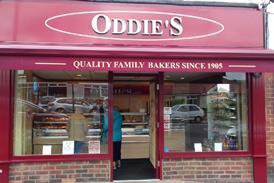
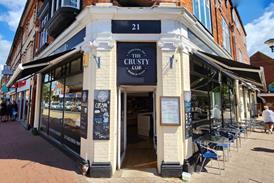
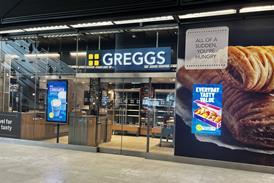


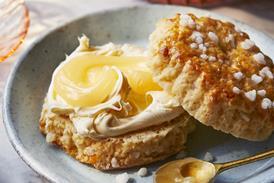
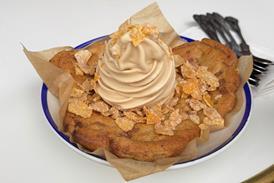



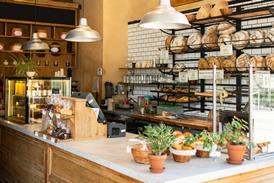



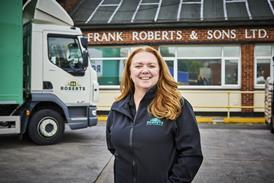
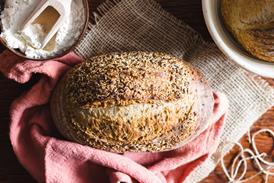
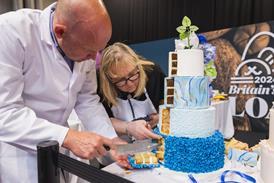
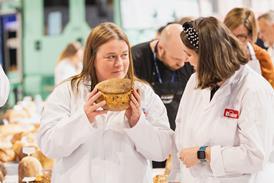
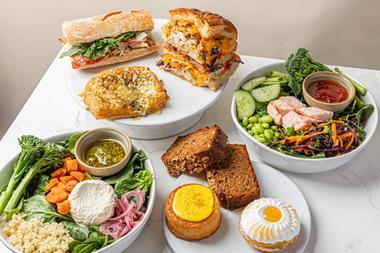

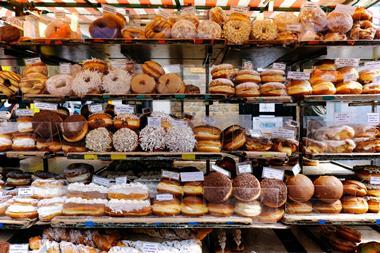


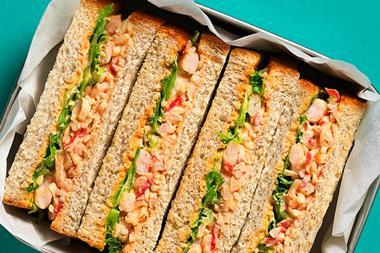



























No comments yet